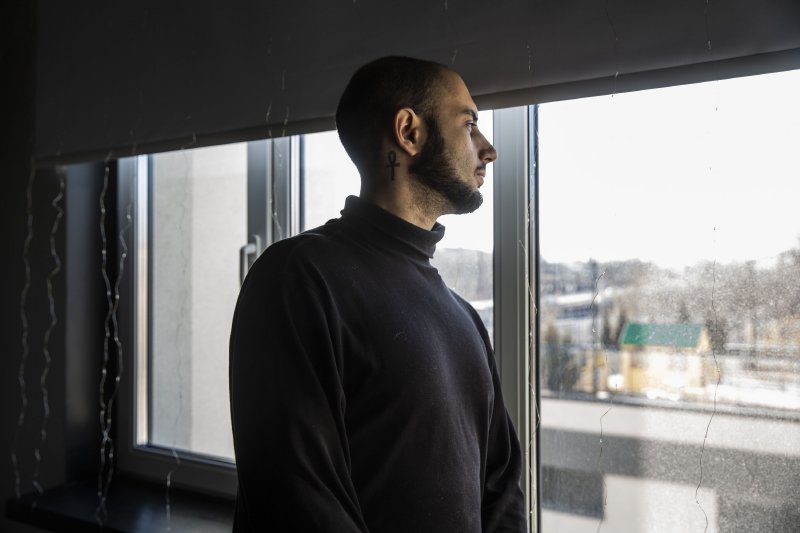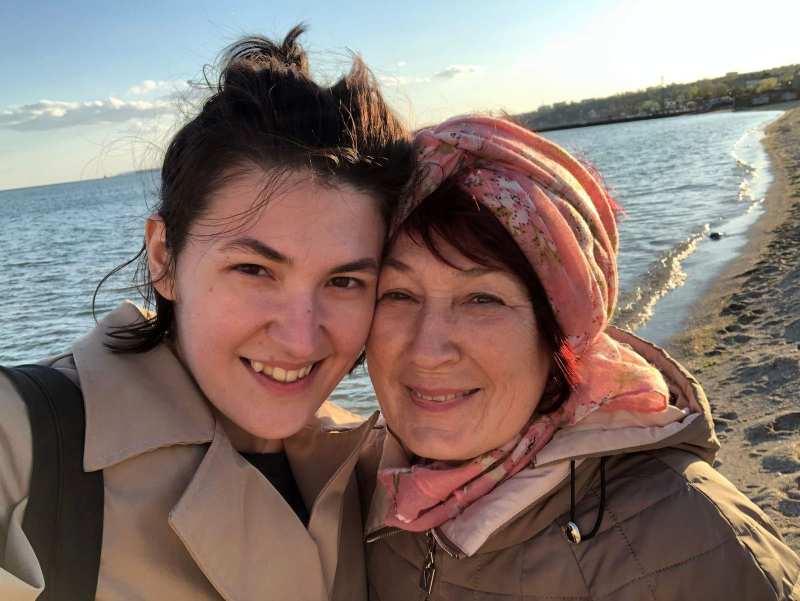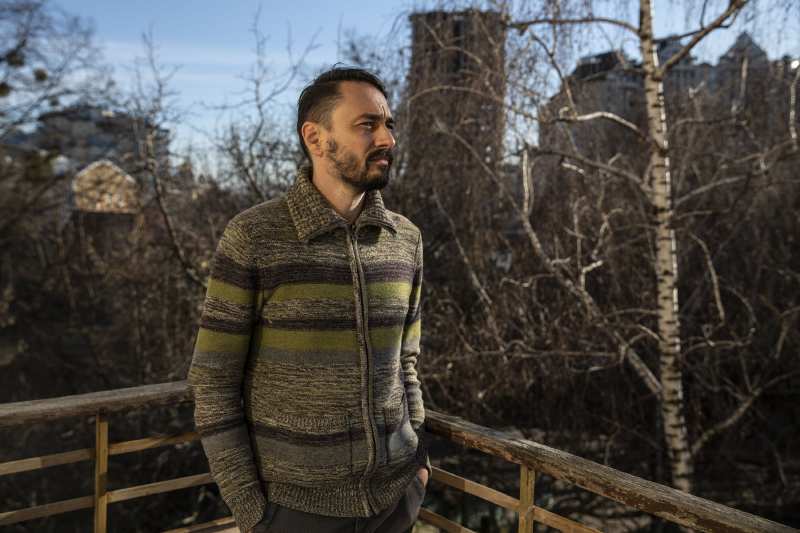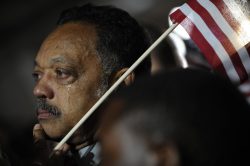
Dima Sokolov, 27, at his friend’s apartment in Kyiv, Ukraine, on March 15, 2022.
17:38 JST, March 18, 2022
KYIV, Ukraine – The last message arrived at 8:05 a.m. on March 2.
“No electricity, no signal, shelling all night and close to us,” Tamara Sokolova wrote to her son, Dima, on Telegram.
The 27-year-old has not heard another word from his mother and other family members since. They are stranded in the southern port city of Mariupol, where Russian forces have launched a devastating assault that has triggered a severe humanitarian crisis.
For two weeks, residents there have lived without electricity, running water, heat or consistent phone connection. Photos and video that have trickled out of the besieged city depict pure horror: mass graves in trenches, corpses abandoned in the streets, a maternity hospital shattered by an airstrike. City officials say thousands of people have died.
Sokolov doesn’t know if his parents and grandmother are among them.
However grim the situation inside the city, Ukrainians stuck outside seeking information about their missing loved ones say they are also living in hell. They spend their days scouring horrific images, searching for familiar faces or clothing – anything that might bring news about their relatives still inside. They organize groups on Telegram and Facebook to try to coordinate information, and try to avoid groups that might be sharing false Russian propaganda. They check official lists of names of evacuees. They are overwhelmed by every possible scenario.
For Sokolov, that means wondering if his parents and grandmother are dead, hurt, freezing, sick, dehydrated, starving or trapped somewhere without crucial medications. The only potential scenario giving him any hope is that they are alive and relatively well – scared, certainly – but unable to contact him due to lack of power and cell signal.
“I don’t care about myself now,” he said in an interview from an apartment in the capital where he is staying with friends to avoid being alone. “People keep telling me: You should think about yourself, not your family. This is hard to explain, but my mind is only with my family.”
While other Ukrainians his age volunteer in the Territorial Defense Forces or find ways to contribute to the war effort, Sokolov said his stress is so extreme he cannot consider either. Anti-depressants help, he said. So does avoiding the news just before he tries to sleep. “I think I would have gone mental without friends supporting me,” he said.
But anxiety over his parents’ and grandmother’s whereabouts and well-being still overwhelms him. “With every new day I feel more and more useless being in Kyiv,” he said. “They’re just 450 kilometers away.”

Anna Tokhmakhchi, a journalist currently in Prague, with her mom, Antonina Lastenko, who is stranded in Mariupol.
Anna Tokhmakhchi also last heard from her mother, Antonina Lastenko, on March 2.
The journalist traveled to Prague for work before the invasion and found herself stuck there. Her mom stayed behind in Mariupol. She urged her to consider relocating, but after eight years close to the front line, Lastenko said she wasn’t afraid.
Then, the situation escalated, and escape routes became nearly impossible for most residents. Being unable to return to rescue her mom is “a big shame for me,” Tokhmakhchi said in a phone interview Wednesday.
“My life is now filled with guilt. I feel it every time I have any meal or drink water or even when I go to bed in a warm place and I think about how my mom could be in the basement” in subfreezing temperatures, she said. “It’s unbearable. Every day is a struggle because I am safe. We don’t have bombings here, we don’t have tanks in our streets. But just thinking about her not having all this basic stuff is killing me.”
The last she heard, her mother, who is 67 and lives alone, was going to search for food and water at a grocery store. Since then, it’s been silence.
It would be “a little bit easier,” she said, if she could even just hear two words: “I’m alive” or “I’m OK.” Instead, Tokhmakhchi, who is an only child, spends her days in Prague scouring images for signs of anything she recognizes from her hometown. She has already identified her old school and the buildings around it, all completely destroyed.
“It’s kind of sad to say but I’m looking through pictures of dead bodies and I’m afraid I’ll recognize my mom by either her clothes or other features,” she said.

Dmytro Gurin, a member of parliament in Kyiv, on the balcony of his home in Kyiv, Ukraine on March 15, 2022.
Dmytro Gurin, a member of Parliament in Kyiv, knows he is among the lucky ones.
His parents are also in Mariupol, but they have a car with some fuel so they have been able to charge their phones using a car charger. They have contacted him several times to confirm they are still alive.
Still, his childhood home was burned and destroyed by a tank. The tree he used to climb as a child was chopped down for firewood. His parents are staying with friends and have no heat, electricity or gas. They have procured water from radiators in the house, from a well and by melting snow. They are cooking over an open fire. They have seen bodies on the street.
Gurin said his father seems to be tapping into strength a person finds “when you just have to stay alive.”
Kateryna Pesotska, 29, fled Kyiv early in the war. Her parents, who are separated, live in Mariupol. At first, her dad didn’t seem to understand the severity of what was happening in the country.
By March 2, as the situation in Mariupol worsened significantly, she lost contact with both of them. Several days later, her aunt reached her and confirmed that her parents were alive.
But she last heard news of her dad on March 9. She is volunteering for an organization trying to document potential war crimes in Ukraine. As she examines footage from Mariupol, some of it is hitting close to home. Her aunt moved out of her apartment building, and it was bombed shortly after. Now her aunt is fleeing the city but said her mom opted to stay behind, for reasons she doesn’t fully understand.
Her aunt’s departure means she is losing her only source of information about her mother. And she still has no recent news of her dad.
In Kyiv, Sokolov sat on the gray couch in his friend’s modern apartment that he pulls out to sleep on each night. Shifting in his seat, he reached for Belka the cat, who offers him a bit of comfort.
In the three weeks since the war began, his world has been turned upside down. Just last month, he was learning to DJ. His parents were safe. Now his life has only one mission: finding his family and taking them to safety. He longs top speak to them, and ask: “Where are you? And I’ll be there as soon as possible.”
Top Articles in News Services
-

Survey Shows False Election Info Perceived as True
-

Prudential Life Expected to Face Inspection over Fraud
-

Hong Kong Ex-Publisher Jimmy Lai’s Sentence Raises International Outcry as China Defends It
-

Japan’s Nikkei Stock Average Touches 58,000 as Yen, Jgbs Rally on Election Fallout (UPDATE 1)
-

Trump Names Former Federal Reserve Governor Warsh as the Next Fed Chair, Replacing Powell
JN ACCESS RANKING
-

Japan PM Takaichi’s Cabinet Resigns en Masse
-

Japan Institute to Use Domestic Commercial Optical Lattice Clock to Set Japan Standard Time
-

Israeli Ambassador to Japan Speaks about Japan’s Role in the Reconstruction of Gaza
-

Man Infected with Measles Reportedly Dined at Restaurant in Tokyo Station
-

Man Infected with Measles May Have Come in Contact with Many People in Tokyo, Went to Store, Restaurant Around When Symptoms Emerged





















